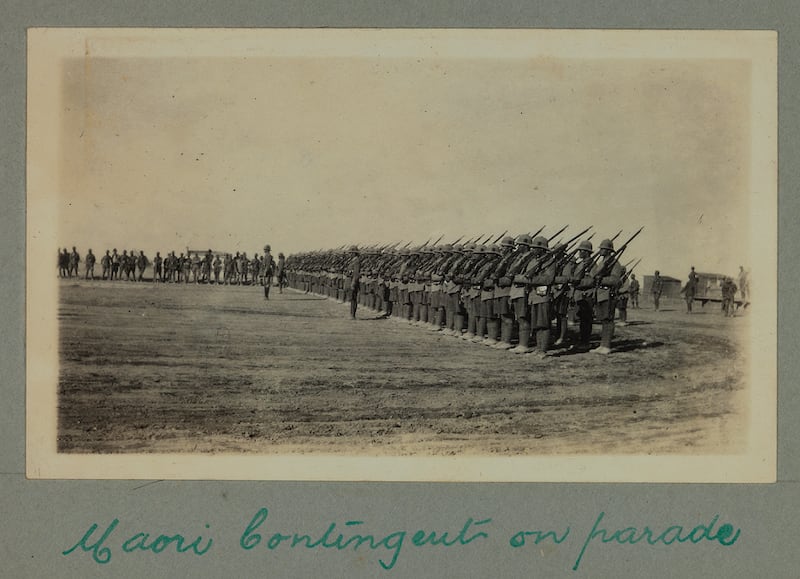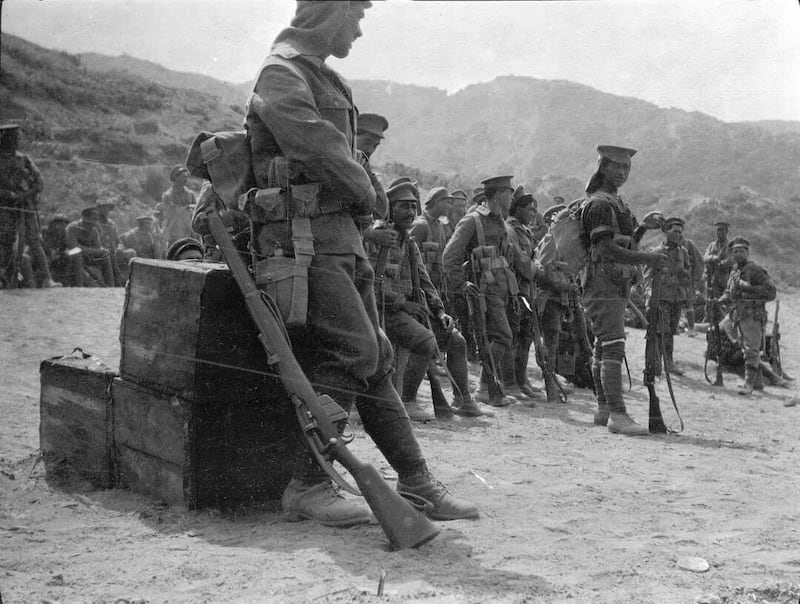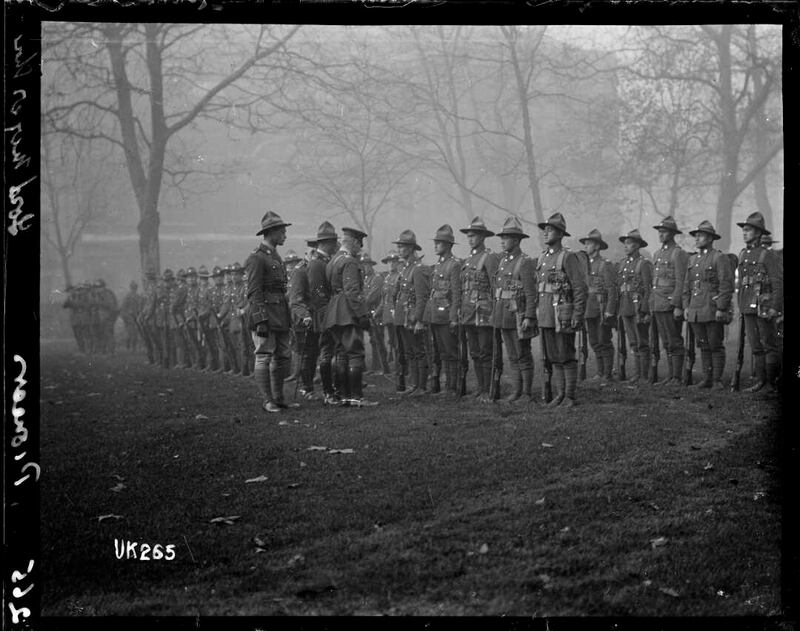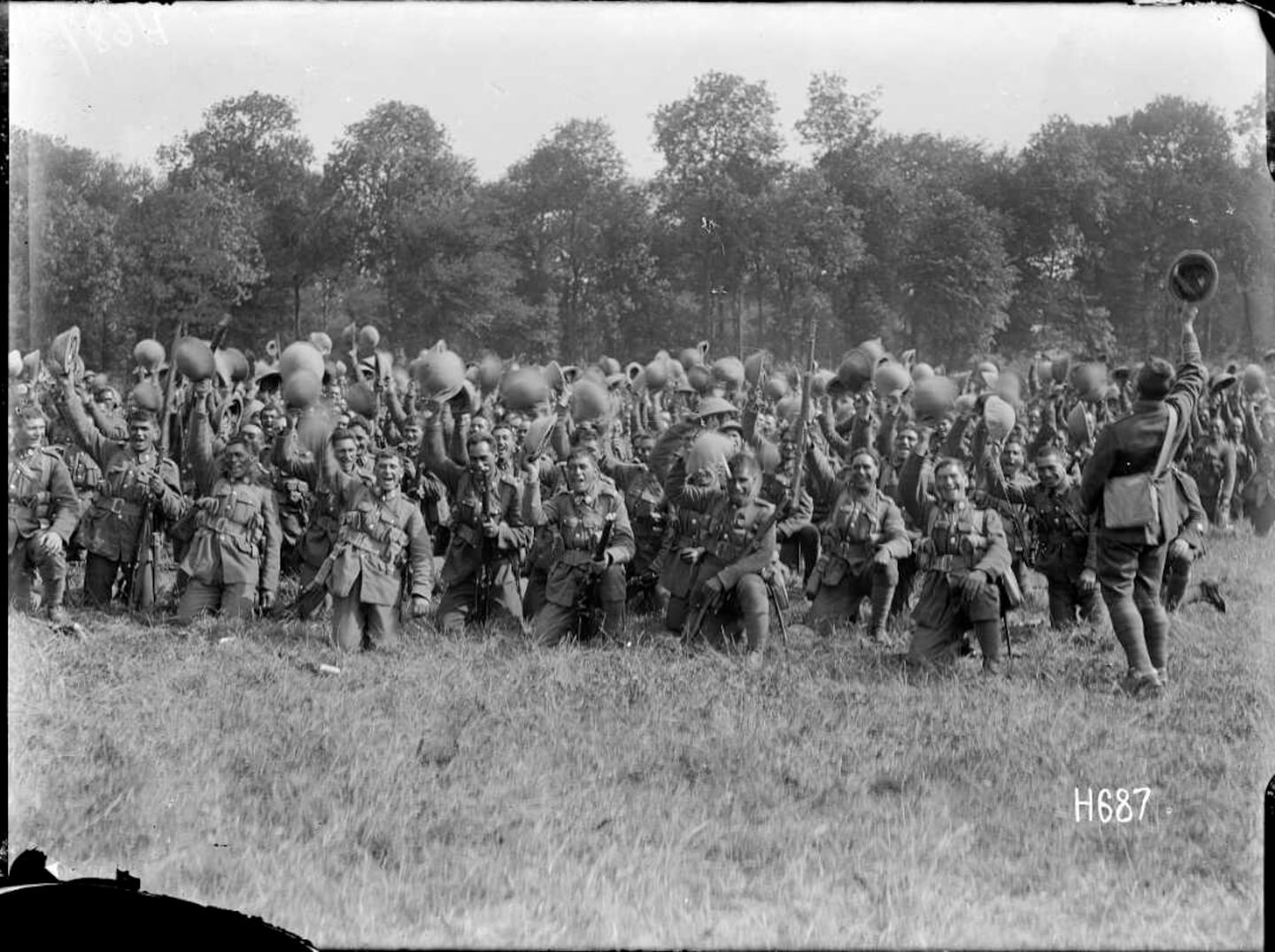The New Zealand Maori Contingent and New Zealand Maori (Pioneer) Battalion, Te Hokowhitu a Tū, are set to receive 22 battle honours for their efforts in the First World War.
Te Hokowhitu a Tū had served at Gallipoli and on the Western Front during the First World War and was disbanded in 1919.
In early 2024, a battle honours committee of senior serving and retired New Zealand Army personnel considered New Zealand Defence Force historians’ research regarding the failure to award battle honours to Te Hokowhitu a Tū.
The rangahau found that the primary issue lay in attempting to apply the historic British Army tradition of awarding battle honours to the New Zealand Army’s post-war structure. The two units were deemed to have no direct connection to the post-war Army, and therefore no successor units to inherit their battle honours, although they were entitled to it.

The committee recommended that a total of 22 battle honours be granted to Te Hokowhitu a Tū. This then led the army to formally seek approval from the king, which was supported by the Minister of Defence and the Prime Minister.
In August 2024, King Charles III approved the honours for the units.
Chief of Army Major General Rose King said the award would add to the kōrero of the actions of Te Hokowhitu a Tū at Gallipoli and the Western Front.
“They are a source of pride for all of those who have and continue to serve in Ngāti Tūmatauenga, the New Zealand Army.”
The awarding of battle honours is a Commonwealth tradition dating back to the 18th century when they were sewn into the flags of infantry battalions and cavalry regiments to recognise feats of courage and steadfastness on the battlefield.
Out of the 22, four are for the New Zealand Maori Contingent for service in Egypt and at Gallipoli, with 18 going to the New Zealand Maori (Pioneer) Battalion for service on the Western Front.

New Zealand Maori Contingent is the only infantry unit in Aotearoa to receive the ‘Hill 60 (Anzac)’ honour, this is due to them being the only Kiwis to take part in the major attack on August 1915 in Gallipoli, alongside Australian and British troops.
The New Zealand Maori (Pioneer) Battalion also received a unique honour, ’Delville Wood’, which was named for a series of engagements fought by British and South African troops to capture a wooded ridge during the Battle of the Somme in 1916. Near the end of this battle, the Pioneers were sent to help British troops improve their frontline and communication trenches on the ridge, where they were engaged in heavy fighting.
These two honours are unique because they haven’t been awarded to any other New Zealand infantry unit.

“This recognition restores to our tūpuna and to all who have served their rightful place in our shared history. It is a moment to reflect on the enduring spirit of those who served,” King said.
| New Zealand Maori (Pioneer) Battalion | New Zealand Maori Contingent |
|---|---|
| Delville Wood | Sari Bair |
| Flers-Courcelette | Hill 60 (Anzac) |
| Morval | Gallipoli 1915 |
| Le Transloy | Egypt 1915-16 |
| Messines 1917 | |
| Ypres 1917 | |
| Polygon Wood | |
| Broodseinde | |
| Passchendaele | |
| Arras 1918 | |
| Ancre 1918 | |
| Albert 1918 | |
| Bapaume 1918 | |
| Canal Du Nord | |
| Cambrai 1918 | |
| Selle | |
| Sambre | |
| France and Flanders 1916-18 |
The ‘Sari Bair’ honour is not unique to the New Zealand Māori Contingent, as it was awarded to all infantry units that fought at Chunuk Bair in August 1915. However, that attack is particularly remembered for Chaplain Henare Wainohu’s emotional and now famous speech to the men encamped at the “Māori Pā” on the eve of the battle.
“Fellow members of a brave family… you are the descendants of warlike ancestors, a handful of warriors amongst the many thousands of men here. The name and honour of the Māori people lies in your hands today. Therefore, my brothers, you will by your noble deeds light such a fire on the mountains that it can never be quenched. Ahakoa iti te Kōpara, kai takirikiri ana i runga i te Kahikatea. Accordingly, I desire you to reach the top of those mountains.”


